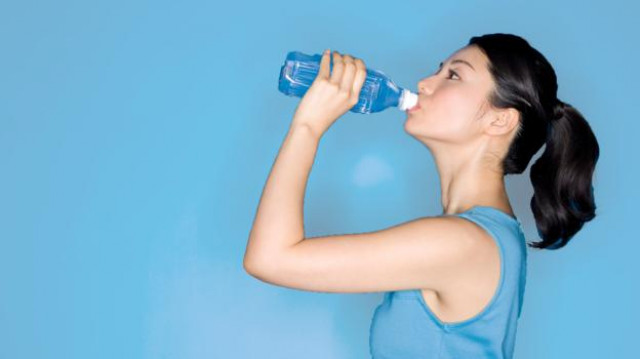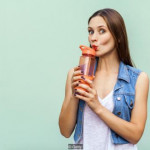 Ukraine reports 5,276 new COVID-19 cases
Ukraine reports 5,276 new COVID-19 cases
 Zelensky: Every third Ukrainian considers road construction one of greatest achievements of 2021
Zelensky: Every third Ukrainian considers road construction one of greatest achievements of 2021
 Ukraine ready to implement Minsk agreements, but Russia's desire needed - Yermak
Ukraine ready to implement Minsk agreements, but Russia's desire needed - Yermak
 Michel: EU unanimously agree to roll over economic sanctions against Russia
Michel: EU unanimously agree to roll over economic sanctions against Russia
 Actions by Ukraine's partners will help prevent worst-case scenario - Zelensky
Actions by Ukraine's partners will help prevent worst-case scenario - Zelensky
 COVID-19 in Ukraine: Health officials confirm 8,899 daily cases as of Dec 17
COVID-19 in Ukraine: Health officials confirm 8,899 daily cases as of Dec 17
 Macron tells Zelensky he declared support for Ukraine in call with Putin
Macron tells Zelensky he declared support for Ukraine in call with Putin
 Zelensky, Scholz discuss gas transit through Ukraine after 2024
Zelensky, Scholz discuss gas transit through Ukraine after 2024
 Ukraine ready for any format of talks with Russia - Zelensky
Ukraine ready for any format of talks with Russia - Zelensky
 Ukraine’s only journalist in Russia facing extremism charges - lawyer
Ukraine’s only journalist in Russia facing extremism charges - lawyer
 PM Shmyhal: First two applications for investment projects worth $96 million filed
PM Shmyhal: First two applications for investment projects worth $96 million filed
 Zelensky, PM of Italy discuss security situation around Ukraine
Zelensky, PM of Italy discuss security situation around Ukraine
 President signs off State Budget 2022
President signs off State Budget 2022
 London considering all options for responding to Russia's aggression against Ukraine
London considering all options for responding to Russia's aggression against Ukraine
 Putin, Biden to hold another round of talks
Putin, Biden to hold another round of talks
 Some 260,000 Ukrainians “victims of human trafficking” over 30 years - prosecutor general
Some 260,000 Ukrainians “victims of human trafficking” over 30 years - prosecutor general
 Ukraine plans to create center to protect energy infrastructure from cyber attacks
Ukraine plans to create center to protect energy infrastructure from cyber attacks
 No clear idea so far when Normandy Four top diplomats set to meet - German Ambassador
No clear idea so far when Normandy Four top diplomats set to meet - German Ambassador
 Ukraine receives EUR 600M in macro-financial assistance from EU
Ukraine receives EUR 600M in macro-financial assistance from EU
 Zelensky holds phone conversation with PM of Israel
Zelensky holds phone conversation with PM of Israel
 Ukraine sets new daily COVID vaccination record
Ukraine sets new daily COVID vaccination record
 MFA: European Union has not yet removed Ukraine from list of safe countries
MFA: European Union has not yet removed Ukraine from list of safe countries
 Kyiv records 1,023 new COVID-19 cases, 29 deaths
Kyiv records 1,023 new COVID-19 cases, 29 deaths
 G7 ambassadors welcome adoption of law on NABU status
G7 ambassadors welcome adoption of law on NABU status
 Ukraine can increase Covid vaccination rates to 1.5M a week – Liashko
Ukraine can increase Covid vaccination rates to 1.5M a week – Liashko
In the early 19th Century, people had to be close to death before deigning to drink water. Only those “reduced to the last stage of poverty satisfy their thirst with water”, according to Vincent Priessnitz, the founder of hydropathy, otherwise known as “the water cure”.
Many people, he added, had never drunk more than half a pint of plain water in one sitting.
How times have changed. Adults in the UK today are consuming more water now than in recent years, while in the US, sales of bottled water recently surpassed sales of soda. We’ve been bombarded with messages telling us that drinking litres of water every day is the secret to good health, more energy and great skin, and that it will make us lose weight and avoid cancer.
Commuters are encouraged to take bottles of water onto the London Underground, pupils are advised to bring water into their lessons and few office meetings can commence without a giant jug of water sitting in the middle of the desk.
Fuelling this appetite for water is the “8x8 rule”: the unofficial advice recommending we drink eight 240ml glasses of water per day, totalling just under two litres, on top of any other drinks.
That “rule”, however, isn’t backed by scientific findings – nor do UK or EU official guidelines say we should be drinking this much.
Where did it come from? Most likely, it seems, from misinterpretations of two pieces of guidance – both from decades ago.
In 1945 the US Food and Nutrition Board of the National Research Council advised adults to consume one millilitre of liquid for every recommended calorie of food, which equates to two litres for women on a 2,000-calorie diet and two-and-a-half for men eating 2,500 calories. Not just water, that included most types of drinks – as well as fruits and vegetables, which can contain up to 98% water.













































































































































